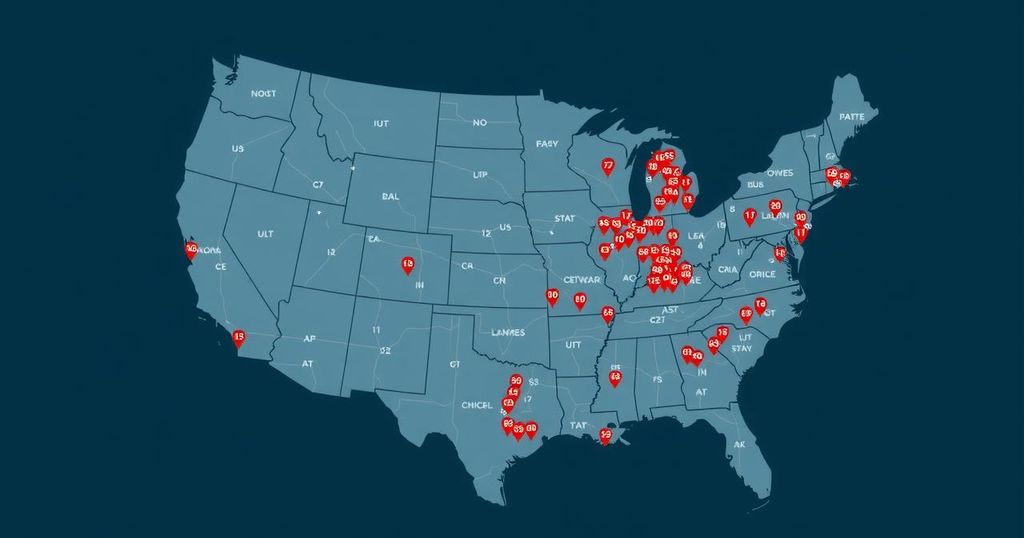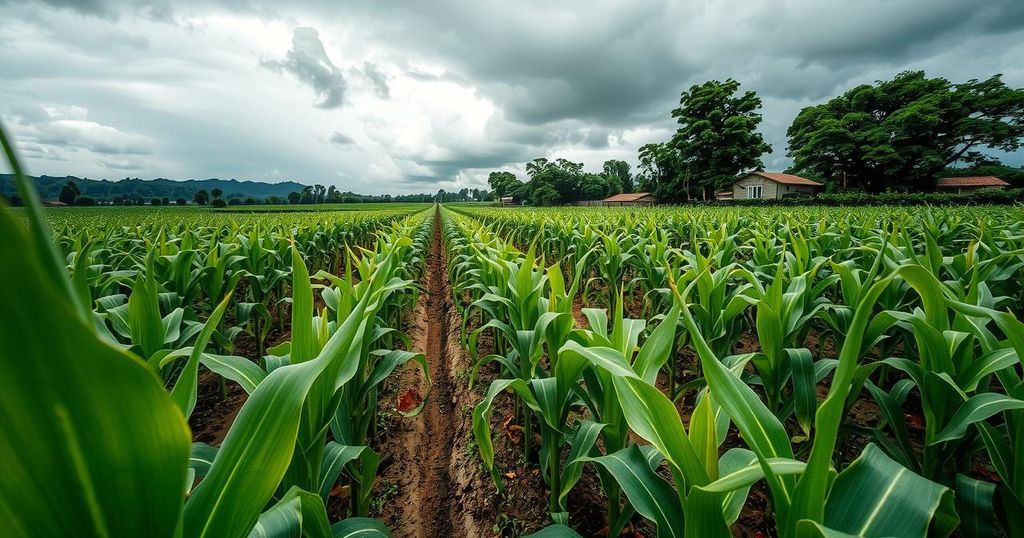The Impact of Climate Change on Electoral Processes: A 2024 Overview
During the 2024 Election Supercycle, extreme weather events disrupted electoral processes in 14 countries. Notable incidents included delays in Tuvalu, heat-related fatalities in India, and flooding in Senegal. The International IDEA’s Election Emergency and Crisis Monitor tracks these challenges, providing resources for electoral stakeholders to mitigate the impacts of disasters on elections.
The 2024 Election Supercycle year witnessed significant disruptions caused by extreme weather across 14 countries, affecting multiple stages of the electoral process including voter registration, campaigning, voting operations, and result announcements. Incidents in nations such as Bosnia & Herzegovina, India, Mexico, Senegal, Tuvalu, and the United States demonstrated how climate change exacerbated challenges to electoral integrity. Major events included storm-induced delays in Tuvalu, heat-related deaths in India, polling station relocations in Austria due to heavy rainfall, and severe heat in Mexico leading to voter fatigue. These occurrences highlighted the urgent need for systems to address the impacts of climate-related disasters on elections.
The International IDEA’s Election Emergency and Crisis Monitor (EECM) serves as a crucial resource in addressing these challenges. It encompasses 65 country briefs covering incidents from 2001 to 2024, allowing users to filter by various criteria, including electoral type and disaster type. The dashboard offers comprehensive analyses of each country’s disaster impacts on elections, detailing societal effects, connections to climate change, and adaptations aimed at securing electoral integrity. Additionally, stakeholders can access a bibliography for further exploration of the issues at hand.
Understanding the intersection between climate change and electoral processes is vital for future electoral integrity. The ongoing challenges to voter participation and safety during elections necessitate the development of robust responses to manage the ramifications of environmental disasters. As global climate patterns potentially lead to increasingly severe weather events, solutions to safeguard democratic processes must be prioritized. This emphasizes the need for enhanced preparedness and infrastructure to support elections amid climatic adversities.
The increasing frequency and severity of extreme weather events due to climate change pose substantial risks to electoral processes worldwide. Disasters such as floods, hurricanes, heatwaves, and others have been shown to disrupt elections significantly, impacting voter registration, campaigning, and voting operations. Recognizing these challenges, International IDEA has developed the Election Emergency and Crisis Monitor (EECM) to provide a detailed overview of how elections worldwide are affected by such disasters. The EECM’s database serves as an important tool for stakeholders to understand the complexities and implications of climate-related disruptions during elections.
In summary, the impact of climate change on elections is becoming increasingly apparent, as demonstrated by numerous disruptive events in 2024. The International IDEA’s Election Emergency and Crisis Monitor provides essential insights into these challenges, offering comprehensive data and analyses to support electoral stakeholders in enhancing preparedness and resilience against future disasters. As global weather conditions continue to shift, it is imperative to develop effective strategies to ensure the integrity of electoral processes amid rising threats from climate-related disasters.
Original Source: www.idea.int




Post Comment